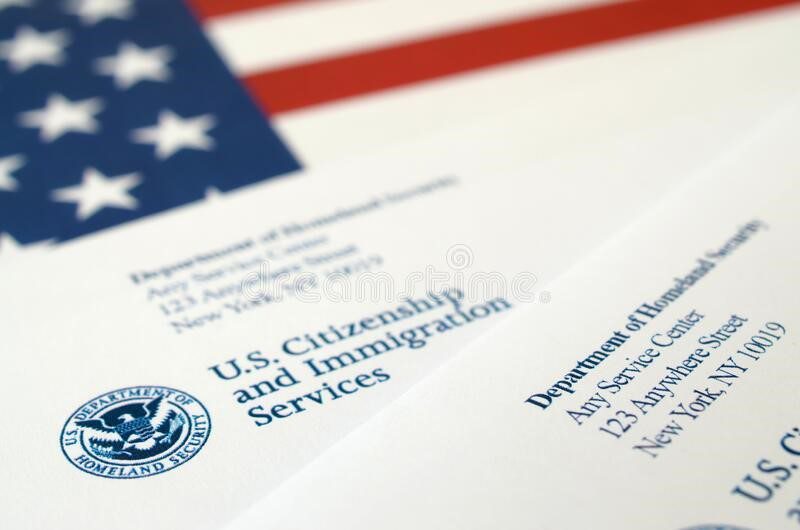Continuing on with the changes in our last blog post, President Biden issued three executive orders on February 4, 2021 that provides a breath of relief for many immigrants and their attorneys. However, while this may seem like exciting news, we worry about the time it may take to implement the changes as many are under review and likely to get deprioritized pending the pandemic relief bill and the impeachment trial of former President Donald Trump. Some of the reviews and changes ordered include:
1. Border Issues – President Biden’s first action was ordering a task force to identify all migrant children who were separated from their families at the U.S. Mexico border under former President Trump’s “Zero Tolerance.†The goal is to reunify families and check if they are eligible for relief under current immigration laws. Aside from those families forcibly removed, many family members opt to leave their children in the U.S. because of their fear of imminent harm if they were to return back to their country of origin. Currently, hundreds of children remain while attempts are made to locate these family members. While this is a step in the right direction, Biden’s order does not mention whether these family members will be afforded any humanitarian protection if they were to come back to the U.S to reunite with their children. The order asks for an initial report with recommendations in 120 days but that is quite a while for children to be separated from their families.
The second order also is a request for a review of Trump’s “Remain in Mexico†policy, also knowns as Migrant Protection Protocol (MPP). This protocol forced thousands of asylum seekers to wait, sometimes in life-threatening conditions, for their immigration court dates while in Mexico.  We have to wait and see what suggestions are made after the review is complete.
2. Public Charge Rule – The third of the executive order requires a thorough review of recent regulations, policies and guidance issued during the Trump administration. Former President Trump expanded the application of the public charge ground of inadmissibility, requiring everyone applying for a green card to submit Form I-944 with numerous documents to prove applicants will not be relying on tax payers’ dollars. Specifically, former President Trump’s May 2019 memorandum urged agencies to enforce the financial responsibilities of sponsors providing support to immigrants. The new administration now requires the heads of relevant agencies to suspend any investigations and issue revised guidelines to create an environment that embraces integration and inclusion. Pending ninth circuit court decision and further guidance, green card applicants must still submit the Form I-944 form along with proof with health insurance, and credit report (or proof they have no credit history).
3. Muslim Ban – The Biden Administration is rolling back the Muslim ban which affected immigrants from 13 countries attempting to enter the U.S. This affected hundreds of families being separated from their families and many refugees unable to reach safety. While this a great start, there is a huge backlog of those whose visas have been cleared but were unable to come to the U.S.
4. DREAM Act of 2021 – Illinois Senator Dick Durbin and South Carolina Senator Lindsey Graham reintroduced the latest iteration of the Dream Act of 2021, which provides undocumented children who were brought into and grew up in the United States a path to citizenship. The previous administration sought to end DACA but the Supreme Court blocked this attempt. The latest Dream Act is identical to versions introduced by the Senators in the past two sessions in Congress, but we have yet to see the finalized version. Our firm will be keeping a close eye on the DREAM Act’s progress.
5. 125,000 Refugees – President Joe Biden announced he is raising the cap on the number of refugees to enter the U.S. to 125,000 starting this fall. While this is 8 times more than the number accepted under former President Trump, it is still far lower than the number the U.S. accepted back in the 1980s. In fact, there seem to be more people now trying to escape violence, poverty, oppression and reasons related to climate change. The United Nations reports that out of more than 20 million refugees they are currently assisting, 1.44 million are in urgent need of resettlement. We hope to see this move be successful and a raise in the cap in the coming years.
6. H-1B – There are two developments in employment related immigration law. First, the court challenge to OPT and STEM OPT extension has failed. OPT, otherwise known as Optional Practical Training, is a program that provides one year of work authorization to students completing their degrees. The students must work in their own fields for at least 20 hours per week. The STEM (Science, Technology, Engineering, Mathematics) program are for graduates who can extend their OPT for two years. There have been several court cases regarding these programs, but recently the court ruled in favor of the government believing these programs are within the authority of the government to promulgate. The second update is the US Department of Labor has delayed to May 14, 2021, beyond the H-1B deadline. Essentially, there was a rule that was going to prioritize higher paying jobs. Under the new administration, DHS decided not to implement that rule for now, and the H-1B process will stay the same as last year.
President Joe Biden also signed an Executive Order revoking the “Buy American and Hire American†(BAHA) order issued by former President Trump. BAHA created an increase in requests for evidence (RFE) and case denials, particularly in applications where the underlying facts regarding the employer-employee relationship remained unchanged from previous petitions.
7. 100-day Moratorium – President Biden issued a 100-day pause on the removal of certain noncitizens, which was blocked by a Texas federal court on January 26, 20201. This temporary restraining order was effective for 14 days but was extended for another two weeks as of February 9, 2021.
8. Alejandra Mayorkas has been sworn in as Secretary of Homeland Security – He is the first immigrant to serve this role. His parents arrived with him and his sister to the U.S as refugees fleeing Cuba in 1960. Prior to this role, he was the Director of U.S. Citizenship and Immigration Services. We expect to see him serving DHS with compassion while also defending and improving security in our nation.
Shahzeen Karim
Associate Attorney
Tidwell, Swaim & Farquhar- Dallas, TX



